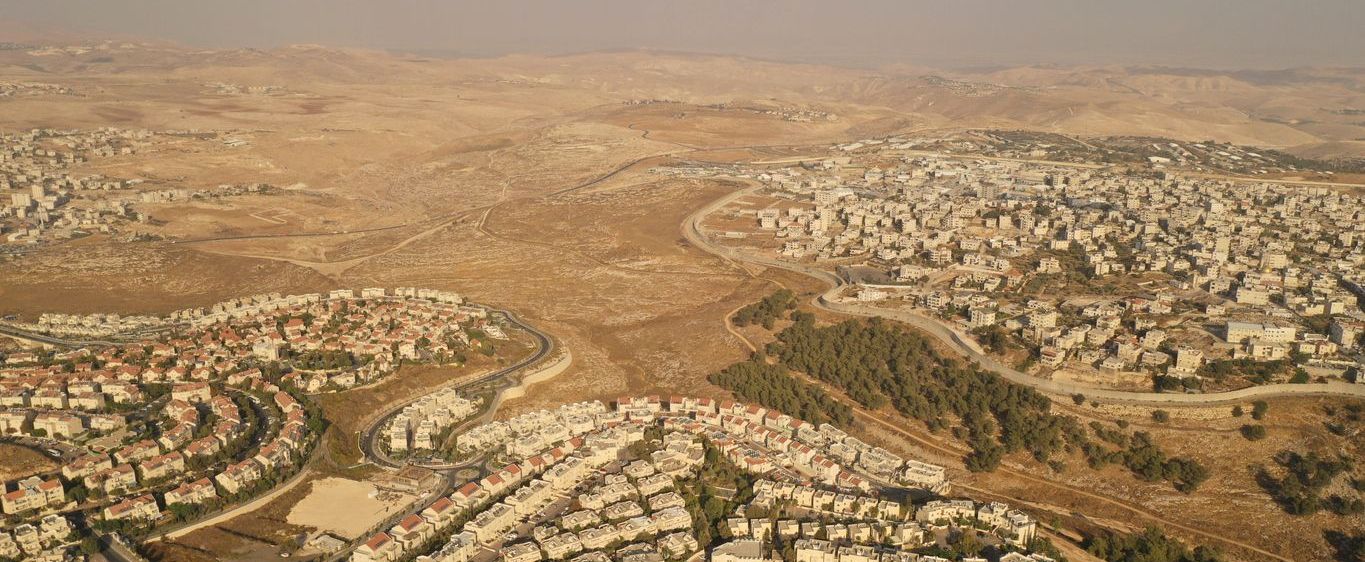2025/09/26
The Palestinian Humanitarian Crisis Deepens: A Road Map to the Only Solution-- “Two-State Coexistence” Is Needed

On August 20, Israel’s Ministry of Defense approved new settlement plans in the Israeli-occupied West Bank. Although described here as “new,” the so-called “E1 plans” have in fact been frozen for two decades amid strong international opposition. If implemented, it would split the territory, severing Jerusalem’s north and south as well as cutting off the West Bank from East Jerusalem. The plans would effectively break the territorial unity of a future Palestinian state.
The Palestinian Authority condemned the settlement move, saying it would “destroy the prospects for a two-state solution,” while the UK, France, Germany, and Japan issued statements calling for “immediate withdrawal.” Settlement construction by Israel is fundamentally not permitted under international law, and also the International Court of Justice (ICJ) has ruled that Israel's occupation policies in Palestine are illegal. Nevertheless, the Netanyahu government, aligned with far-right forces, has accelerated its occupation policy through settlement expansion, seeking to preclude the political prospect of a two-state coexistence.
This past February, a screening of journalist Yasunori Kawakami’s documentary film titled “Kabe no Soto to Uchi” (Outside and Inside the Wall) was held at the shared bookstore Sen-ichi Books in Chofu City, with which I am involved in operations. Since then, the film has been re-edited for theatrical release and is now being shown in cinemas nationwide. On August 30, I had the opportunity to watch it again at the Eurospace theater in Shibuya. The reality of the West Bank—trampled under the violence and exclusion exerted by the Israeli military and settlers—is beyond what we Japanese can readily imagine. The film highlights the days of a Palestinian woman whose husband is imprisoned in an Israeli jail, leaving her with no way to see him. However, I was deeply moved by her gentle manner in preserving a fragment of daily life, with a few wild roses she had picked by herself placed in her room.
The film also depicted some Israeli youth refusing to take part in military occupation and inhumane acts. The world is now aware of the devastating situation in Gaza, where people suffer from destruction and starvation. Yet, the film suggests that many Israeli citizens continue to avert their eyes from this “inconvenient truth.” Hearing this, I asked Mr. Kawakami, “Is this indifference due to censorship in Israel?” To this, he firmly responded, “The main reason is the self-restraint of the major media.” He added that Arabs who appear in the news are portrayed only as offenders of violence, and that such an atmosphere pervades the entire country.
On September 1st, Japan’s Foreign Minister Iwaya Takeshi, attending a meeting of foreign ministers from the Gulf Cooperation Council (GCC) member states, announced that Japan agreed to deepen cooperation with the GCC members to realize a two-state solution. Over 150 countries have recognized a Palestinian state. In addition, France, the UK, and Canada released plans to recognize Palestinian statehood. Now is the time for Japan, too, to join this recognition.
■For your reference:
Official website for Yasunori Kawakami’s documentary film, Kabe no Soto to Uchi (Outside and Inside the Wall)
Takashi Mizukoshi, the President
This Week’s Focus, August 31–September 4, 2025